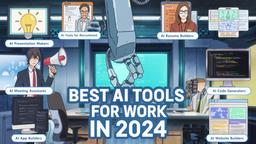Biocube Technologies Inc. Features
Website
Biocube Technologies Inc. is a next-generation digital identity and data analytics company offering AI-powered biometric authentication solutions for secure and frictionless access across industries.
View MoreKey Features of Biocube Technologies Inc.
Biocube Technologies Inc. is an AI-powered digital identity and data analytics company that provides contactless biometric authentication solutions. Their platform offers multi-factor, multimodal biometric verification including face, fingerprint, voice, eye and palm recognition. It is hardware-agnostic, works with poor internet connectivity, and can be integrated into existing systems. Biocube's solutions are used across industries like banking, travel, education and healthcare for secure access control, attendance tracking, and identity verification.
Multimodal Biometric Authentication: Offers face, fingerprint, voice, eye and palm recognition with 1200+ unique features for robust identity verification
Hardware-Agnostic Platform: Compatible with smartphones, tablets, CCTV, IP cameras, laptops without need for specialized hardware
Offline Functionality: Works with poor internet connectivity, allowing authentication and attendance tracking even offline
AI-Powered Analytics: Utilizes artificial intelligence and machine learning for data-driven insights and decision making
Liveness Detection: Advanced anti-spoofing measures to prevent fraud and ensure only real humans are authenticated
Use Cases of Biocube Technologies Inc.
Secure Banking Access: Enables biometric authentication for customer onboarding, transactions and account access in financial institutions
Contactless Travel: Facilitates seamless passenger journey from terminal entry to boarding using biometric checkpoints
Attendance Management: Allows educational institutions and workplaces to track attendance using facial recognition
Border Control: Enhances security at borders and airports through multi-factor biometric identity verification
Healthcare Access: Secures patient data and enables touchless access to healthcare facilities using biometrics
Pros
Highly secure multi-factor authentication
Versatile and compatible with existing infrastructure
Works offline with poor connectivity
Customizable for different industry needs
Cons
May raise privacy concerns around biometric data collection
Requires integration effort with legacy systems
Potential for biases in AI/ML algorithms
Popular Articles

Claude 3.5 Haiku: Anthropic's Fastest AI Model Now Available
Dec 13, 2024

Uhmegle vs Chatroulette: The Battle of Random Chat Platforms
Dec 13, 2024

12 Days of OpenAI Content Update 2024
Dec 13, 2024

Best AI Tools for Work in 2024: Elevating Presentations, Recruitment, Resumes, Meetings, Coding, App Development, and Web Build
Dec 13, 2024
View More